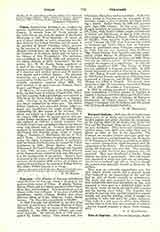

Young Men’s Institute, The, a Catholic fraternal organization, founded on March 4, 1883, at San Francisco, California. The six founders were: John J. McDade, first grand president and subsequently the first supreme president; James F. Smith, ex-grand president, now member of the Commerce Court at Washington, D.C.; Edward I. Sheehan; William T. Ryan; William H. Gagan; and George R. Maxwell. After many preliminary meetings and much deliberation, a constitution was formed and adopted and officers were elected.
The Young Men’s Institute is the only beneficial and fraternal organization originating in the West which has become a national organization. Its objects and purposes are: “Mutual aid and benevolence, the moral, social, and intellectual improvement of its members, and the proper development of sentiments of devotion to the Catholic Church and loyalty to our country, in accordance with its motto, ‘Pro Deo, Pro Patria'” (Constitution of Supreme Council). The Supreme Council has all authority essential to the exercise of supreme legislative and appellate power, and is vested with supreme authority over the several Grand Council Jurisdictions (five in number), having a uniformity of general laws, but without interfering with the local conditions peculiar to the separate jurisdictions. The Subordinate Councils stand in the same general relations to the different Grand Council Jurisdictions that the several counties stand to the respective states in which they are located. The Detached Councils are under the direct supervision and control of the Supreme Council, because they are not as yet able to sustain a Grand Council Jurisdiction. Membership is divided into three classes: (I) beneficiary, those who desire to participate in sick and funeral benefits and who are between the ages of eighteen and forty-five years; (2) active, those who do not desire to participate in either sick or funeral benefits; (3) honorary members, who may be of any age. No person is eligible to membership, or can remain a member, unless he is a practical Catholic. The organization has spread through the United States, British Columbia, Canada, the Northwest Territory, the Hawaiian and the Philippine Islands, and at present has a membership of 20,000; it is strongest in California. Archbishop Patrick W. Riordan has never failed to encourage the organization, and in public, as in private, has been unstinted in his praise and commendation. In addition, the organization has received the approbation of Popes Leo XIII and Pius X, as well as the approval of the Apostolic Delegates to the United States, the Hierarchy in the United States, Canada, British Columbia, the Hawaiian and the Philippine Islands.
F. J. KIERCE; GEORGE A. STANLEY

